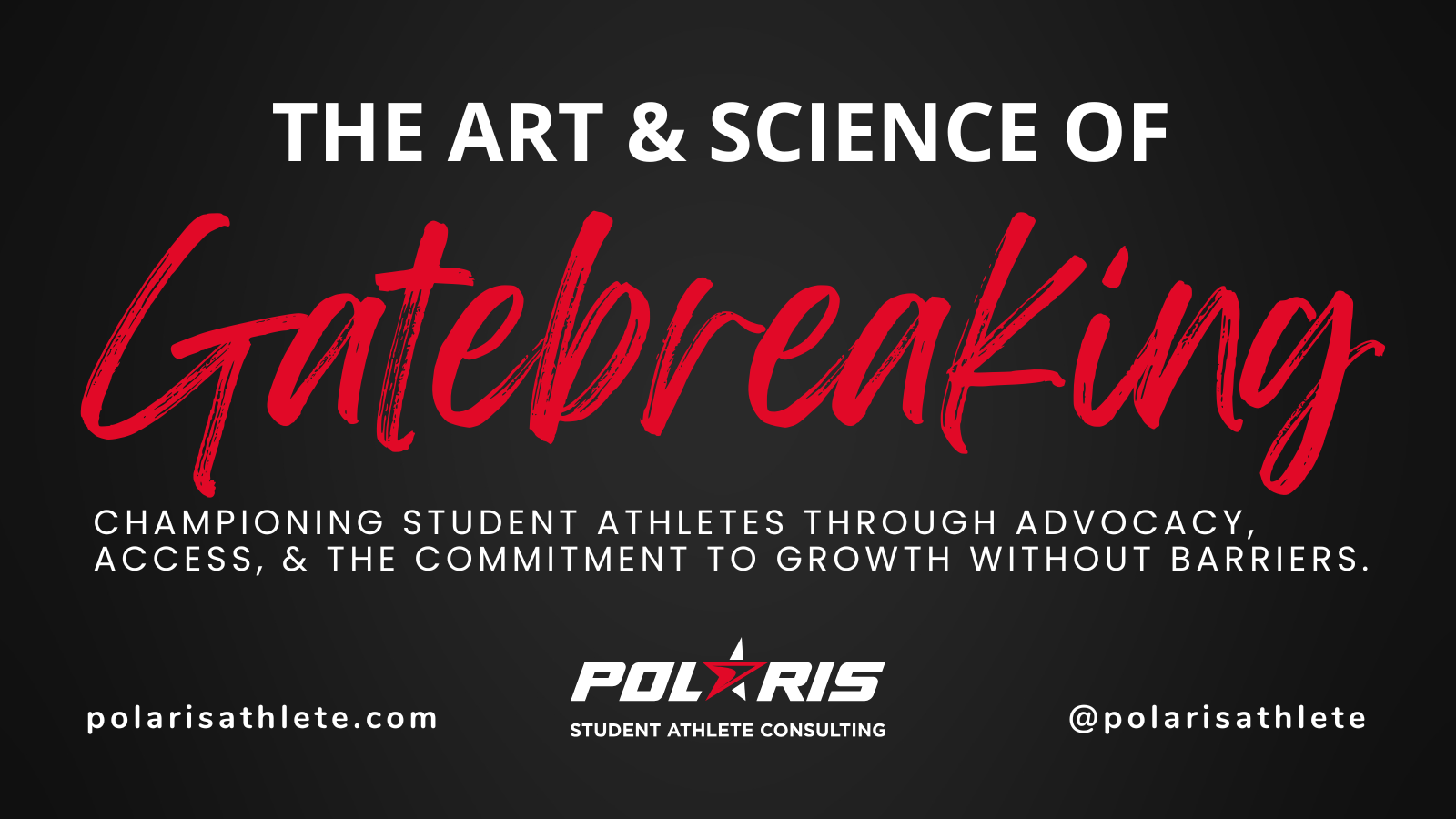The Art & Science of Gatebreaking
This morning, I caught up with a friend whose son is a high school sophomore with aspirations of playing college baseball. Like many student athletes, he’s no stranger to hard work. His development, both on the field and in the classroom, has been earned, not handed to him. What makes him stand out isn’t just his athletic potential, but his mindset. He’s the kind of student athlete who believes in growth, in putting in the work, and in proving to himself that he belongs.
Recently, he set a personal goal to enroll in an honors-level course for the upcoming school year. It wasn’t about padding his transcript or checking a box. It was about challenging himself, stepping up academically, and showing that the same discipline that drives his athletic success can fuel his academic growth as well. Unfortunately, he was denied the opportunity to take that course.
For a student who was seeking to stretch and grow, it was a frustrating setback. But what impressed me most was the family’s response. Instead of backing down, they’re moving forward with an appeal, advocating for his chance to prove himself. They’re not asking for shortcuts. They’re simply asking for the opportunity.
I’ll say it, even if it’s not a popular opinion in my professional circles:
Throughout both the high school landscape and the college admissions process, there are gatekeepers.
Whether it’s course access, academic tracking, or athletic recruiting, students are often filtered through systems that can be rigid, outdated, or biased—sometimes all three. It’s not always intentional, but it is limiting. And when schools default to gatekeeping, they overlook the full picture of a student’s potential, especially for those who thrive through effort and resilience rather than early accolades. Gatekeepers tend to focus on limitations, restrictions, and maintaining boundaries, rather than creating opportunities. Sometimes, those boundaries come from policy. Other times, they come from perception.
At POLARIS Student Athlete Consulting, we take a different approach. We see ourselves as stewards. A steward sees the creative possibilities and untapped potential that can help students succeed and systems evolve. Our role is to equip students with the tools, knowledge, and access they need to thrive. Whether it’s sharing valuable resources, decoding complex systems, or helping dismantle barriers within schools or the college admissions landscape, our mission is to empower student athletes every step of the way.
This story isn't just about one honors course. It’s about what it represents: a young person asking to be seen for their effort, not just their current performance. A student asking for the chance to rise to a challenge, not to be protected from it. And a family advocating for that opportunity, even when it’s inconvenient or uncomfortable.
Understanding the System: The School Counselor’s Reality
It’s important to acknowledge that school counselors and administrators are under immense pressure when it comes to building the master schedule. They must juggle a complex set of priorities: graduation requirements, staffing limitations, course requests, teacher availability, contractual obligations, and state mandates. They also strive to meet students' academic needs, support college and career readiness, and offer electives that reflect student interests—all while trying to make everything fit within a limited number of class periods and physical resources.
This work is intricate and demanding. And most of the time, those tasked with building schedules do so with genuine care for student success. However, even with the best intentions, institutional constraints can make it difficult to offer the kind of customization that high-performing or highly engaged students, including student athletes, often need.
Navigating the System: The Appeal Process
As someone who has sat on the other side of the desk, I’m energized by the opportunity to lead the charge when it comes to student advocacy, guiding appeals processes, and always working in the best interest of the student. If we want to prepare young people for college and life, we must be willing to look beyond policies and transcripts and see the person behind them.
Growth doesn’t always happen within neat parameters. Sometimes, it starts with one student, one challenge, and one adult willing to say, “Let’s make this work.”
We are proud to stand with families who believe in possibility. Because at POLARIS, we don’t just guide student athletes—we champion them.
How POLARIS Helps Families Navigate Course Selection and Scheduling
Academic Planning with Purpose: We help families map out multi-year course plans that align with graduation requirements, NCAA eligibility, and the level of academic rigor expected by college admissions offices.
Communicating with Schools: We guide families in how to approach school counselors and administrators with thoughtful, respectful questions and course requests.
Creative Problem-Solving: When a desired course or academic sequence isn’t available, we help families explore alternatives such as dual enrollment, summer coursework, independent study, or virtual learning options.
Framing the Why: We work with students and parents to clearly communicate the rationale behind a course request—whether it’s about preparing for a specific major, supporting athletic development, or managing time wisely.
Advocacy Without Adversity: Our role is to support, not to create conflict. We partner with schools to find collaborative solutions that honor both the student’s goals and the school’s mission.
Looking Ahead to 2025–2026
Now is the time to start thinking critically about which courses make the most sense for your student. If you're unsure whether your school’s schedule supports your student athlete’s needs or if you’ve already encountered obstacles, we’re here to help! We can guide you as you reframe the situation, advocate effectively, and keep your student’s long-term goals front and center.
At POLARIS, we believe in transparency, possibility, and student-first solutions. We don’t accept “no” as the end of the story. Instead, we ask the right questions, explore the best alternatives, and help students build a path forward. Let’s shape the future together—course by course!

